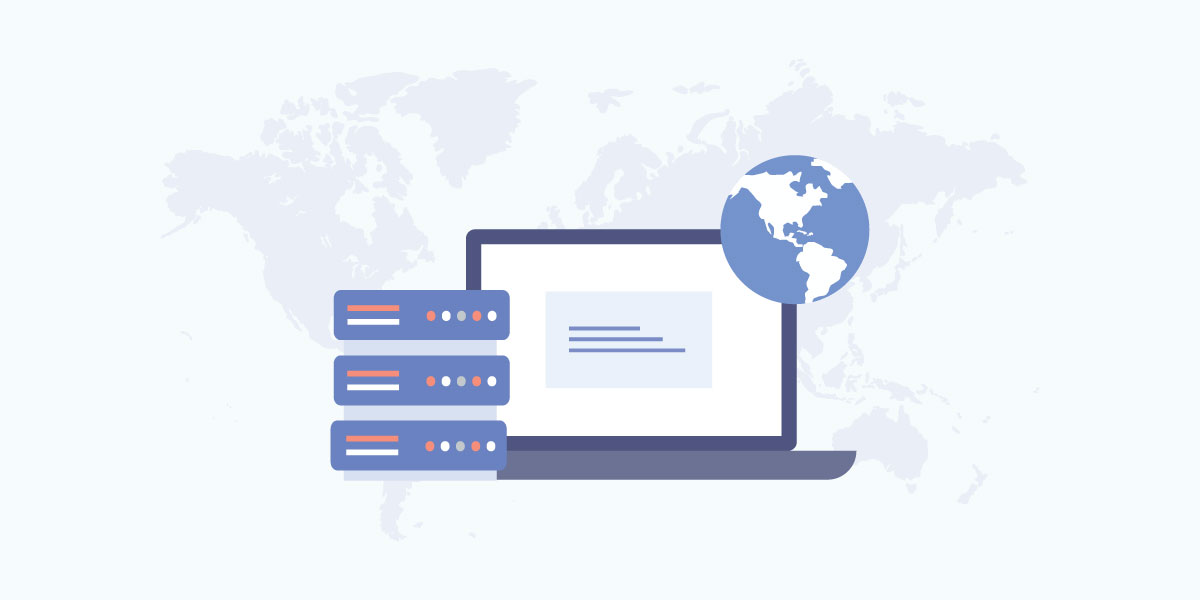
Intro
In case you are wondering what is a proxy server, we’ll give you a simple analogy. What a proxy does is basically the job of a middleman. Essentially, one party will give orders to the proxy server and the proxy will then carry out the order with another party. The 2nd party will have no idea who is the 1st party as the middleman does all the heavy lifting.
In Internet terms, you can use a proxy server to visit a website. The proxy server will fetch the webpages of that website and forward them to you. It gives you anonymity as your identity, your IP and other info are not given to the website.
How does this affect my online business?
Let’s say you operate an online store selling sporting equipment. A guy visits your website using a proxy server and proceeds to order an expensive item from your store. With geolocation, you can know the location of his IP address. But by using a proxy, the IP address belongs to the proxy server and not the buyer’s actual IP. He can then put the delivery address for a shipping forwarder.
Imagine if he turns out to be using a stolen credit card. How are you going to track him down since he has obfuscated his location? The order could also be sent to a P.O. box or drop off point. The authorities would have a tough time tracking him down, not to mention the jurisdictional nightmare if the order was sent to a different state or country. Your company would have suffered a huge loss.
What about my streaming service?
Ah yes, another common service that is regularly abused by users via the use of proxy servers. Users might be located in a region or country that your audio/video streaming service is not licensed to operate. So, they bypass your restriction using proxies. While you don’t lose money per se, your licensing agreement with your content providers could be in jeopardy.
The various proxy types and their effect on your business
Virtual Private Network (VPN) – This is the most common proxy type used by normal folks. While some are used for preserving the users’ privacy, it is also the main culprit being used when committing online fraud.
Tor exit node (TOR) – Tor is generally used by political activists to hide from oppressive government surveillance and tracking. However, it can be used for nefarious purposes too.
Hosting provider, data center, content delivery network (DCH) – An IP address from this range may or may not be used as a proxy. That said, it is suspicious if you receive an online order from an IP address that belongs to a hosting provider, data center or a CDN.
Public proxies (PUB) – Public proxies are a simpler form of proxy server that one would normally use within an Internet browser. They are more limited in what they can do compared to VPN proxies.
Web proxies (WEB) – Web proxies are usually accessed via a webpage where you key in the URL and they return the results. Often you can’t do much with these except view some webpages.
Search engine robots (SES) – Search engine robots are servers that crawl your website to index their contents. Search engines like Google and Bing use these. Normal users won’t have access to such IP addresses.
Residential proxies (RES) – Most residential proxies operate similar to VPNs with 1 big difference. The machines hosting the residential proxy servers are usually computers at homes or in SOHO environments. Being a computer in someone’s home or home office, it is tough to determine whether it is a proxy server or not.
Consumer Privacy Network (CPN) – These services ensure encrypted traffic from the user’s browser by routing internet requests through relays, concealing the IP address, location, and browsing activity.
Enterprise Private Network (EPN) – Services like SASE or SD-WAN combine network security functions with wide-area networking (WAN) capabilities to meet the secure remote access needs of organizations.
Detecting the various proxy types
With the IP2Proxy data, online merchants or service providers can detect whenever someone is using a proxy server to visit their websites. Detecting whether the user’s IP is a VPN/TOR/RES is paramount as these 3 proxy types are usually up to no good. Any online orders originating from such IP addresses should be flagged by manual review or rejected outright.
Meanwhile, IP addresses from DCH/PUB/WEB should also be monitored for malicious activities but generally these are lower risk compared to the VPN/TOR/RES IP ranges. SES ranges can be ignored when it comes to fraud.
NOTE: To get access to the RES data, you need to have access to the IP2Proxy PX10 package.
Check out the IP2Proxy data today and start protecting your website from bad actors.
DISCOVER THE POWER OF IP GEOLOCATION
Find a solution that fits.
